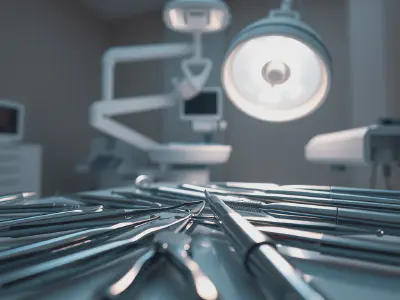Discover the Freshness of Poke Poke Bar
There's a new trend in the culinary world, and it's taking the food scene by storm. Poke Poke Bar has quickly become a favorite among health-conscious foodies and seafood lovers alike. With its fresh ingredients and customizable bowls, Poke Poke Bar is revolutionizing the way we enjoy a healthy, delicious meal.
Are you a fan of the sumptuous Hawaiian dish known as poke? If so, you're in luck! Head over to our poke poke bar , where we serve an incredible range of delectable poke bowls, prepared with the freshest ingredients and loaded with flavors that will captivate your palate.
Poke Poke Bar offers a wide variety of options for a poke bowl, allowing you to choose from a range of proteins, toppings, and sauces. Whether you're in the mood for salmon, tuna, or even tofu, Poke Poke Bar has you covered. And with their selection of fresh fruits, vegetables, and seasonings, you can create a bowl that suits your taste perfectly.
Dive into the world of authentic Hawaiian cuisine at Steve's poke establishment , a poke poke bar that uses a mix of traditional and new-age ingredients to bring you an unforgettable poke experience.
But what exactly is Poke Poke Bar? Where did it come from? And why has it become so popular? Let's dive in and explore the world of Poke Poke Bar.
Poke Poke Bar is a Hawaiian dish that has been around for centuries. In Hawaiian, 'poke' means 'to slice' or 'cut into pieces.' Traditionally, poke was made with fresh fish, such as tuna or salmon, mixed with sea salt, seaweed, and other seasonings. It was a simple and flavorful dish that was often enjoyed as a snack or appetizer.
In recent years, poke has gained popularity in the mainland United States, and Poke Poke Bar has taken the concept to a whole new level. With its modern twist on the traditional Hawaiian dish, Poke Poke Bar offers a variety of bases, proteins, toppings, and sauces, allowing you to create your own unique bowl.
What is Poke Poke Bar?
Poke Poke Bar has a rich history rooted in Hawaiian cuisine. It was originally a simple dish made with fresh fish, seasonings, and other ingredients. However, Poke Poke Bar has evolved over time, incorporating new flavors and ingredients to create a truly unique culinary experience. Today, it is a popular fast-casual restaurant chain with locations across the United States.
Poke Poke Bar has quickly expanded since its inception, with locations in major cities like Los Angeles, San Francisco, and New York City. Each location offers the same high-quality ingredients and customizable options, ensuring that customers can enjoy a fresh and flavorful bowl no matter where they are.
Fans of healthy, delicious food can rejoice because our Hawaiian-inspired poke poke bar has an amazing selection of customizable poke bowls. Hurry and grab your bowl of goodness!
The menu at Poke Poke Bar is filled with an array of delicious options. From the base to the toppings, you have the freedom to create a bowl that suits your taste preferences. Whether you prefer a traditional sushi rice base or a healthier option like mixed greens or quinoa, Poke Poke Bar has something for everyone.
Want to see how we're changing the poke game? Check out our trending videos on TikTok , where our poke poke bar showcases unique recipes, behind-the-scenes footage, and exciting promotions.
One of the highlights of Poke Poke Bar is its signature dishes. These bowls have been carefully crafted by the culinary team to showcase the best flavors and ingredients. From the classic Hawaiian style bowl with fresh tuna and seaweed to the spicy salmon bowl with a kick of sriracha, each signature dish is a work of art.
Ingredients used at Poke Poke Bar
Freshness is key at Poke Poke Bar. They source the highest quality fish from trusted suppliers to ensure that every bite is flavorful and delicious. From salmon to yellowfin tuna, each type of fish is carefully inspected to meet the highest standards of freshness and quality.
In addition to fresh fish, Poke Poke Bar also caters to vegetarians and vegans. They offer a variety of plant-based proteins, such as tofu and edamame, to create a satisfying bowl for those who prefer a meat-free option.
The seasonings and sauces at Poke Poke Bar are what take the flavors to the next level. From traditional soy sauce and sesame oil to creative options like wasabi mayo and mango habanero sauce, there's a sauce for every palette. Each sauce is made in-house, ensuring that you get a burst of flavor in every bite.
Customizing your poke bowl at Poke Poke Bar
One of the best things about Poke Poke Bar is the ability to customize your own poke bowl. You have the freedom to choose a base, select your proteins, add your favorite toppings, and finish it off with a delicious sauce. The possibilities are endless!
When it comes to choosing a base, you can opt for traditional sushi rice or go for a healthier option like mixed greens, brown rice, or quinoa. Each base provides a different texture and flavor profile, allowing you to create a bowl that suits your taste preferences.
Our poke poke bar at Steve's promises to take your taste buds on a culinary journey to Hawaii. Featuring the finest selection of sushi-grade fish, nutritious vegetables, and specially-mixed sauces – we're your go-to poke paradise!
After selecting your base, it's time to choose your proteins. Poke Poke Bar offers a wide variety, including fresh tuna, salmon, shrimp, and even tofu. You can select one protein or mix and match for a more diverse bowl.
If your lunch or dinner plans include trying out a delicious, healthy, and fresh option, look no further! Visit our unique poke establishment on Instagram for a sneak peek at what awaits at our poke poke bar.
Toppings are the finishing touch to your poke bowl. From fresh fruits and vegetables to crunchy toppings like tempura flakes and sesame seeds, you can add as much or as little as you like. And let's not forget the sauces! Poke Poke Bar offers a range of sauces, from mild and creamy to spicy and tangy, allowing you to create the perfect flavor combination.
Health benefits of eating at Poke Poke Bar
One of the main reasons people love Poke Poke Bar is its high protein content. Fish, tofu, and edamame are all excellent sources of protein, making it a great choice for those looking to increase their protein intake.
In addition to being high in protein, Poke Poke Bar also offers low-calorie options. By choosing a lighter base and opting for lean proteins, you can enjoy a satisfying meal without the guilt.
The nutritional value of the ingredients used at Poke Poke Bar is another reason why it has become a go-to choice for health-conscious individuals. Fish is rich in omega-3 fatty acids, which are essential for heart health and brain function. Vegetables and fruits provide essential vitamins and minerals, while the sauces add flavor without adding unnecessary calories.
Popular Poke Poke Bar locations
One of the most popular locations of Poke Poke Bar is in Los Angeles. Located in the heart of the city, this branch is known for its vibrant atmosphere and delicious bowls. Whether you're a local or a tourist, a visit to Poke Poke Bar in Los Angeles is a must.
San Francisco is another city where Poke Poke Bar has gained a loyal following. With its emphasis on fresh, local ingredients, San Francisco is the perfect location for a Poke Poke Bar. From the Financial District to the Mission, you can find a Poke Poke Bar conveniently located throughout the city.
New York City is known for its diverse culinary scene, and Poke Poke Bar is a welcome addition. With its customizable bowls and fresh ingredients, Poke Poke Bar has quickly become a favorite among New Yorkers. Whether you're in Midtown, the East Village, or Brooklyn, you're never too far from a delicious poke bowl.










